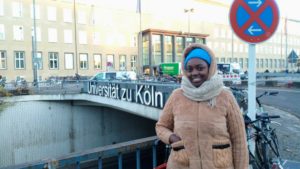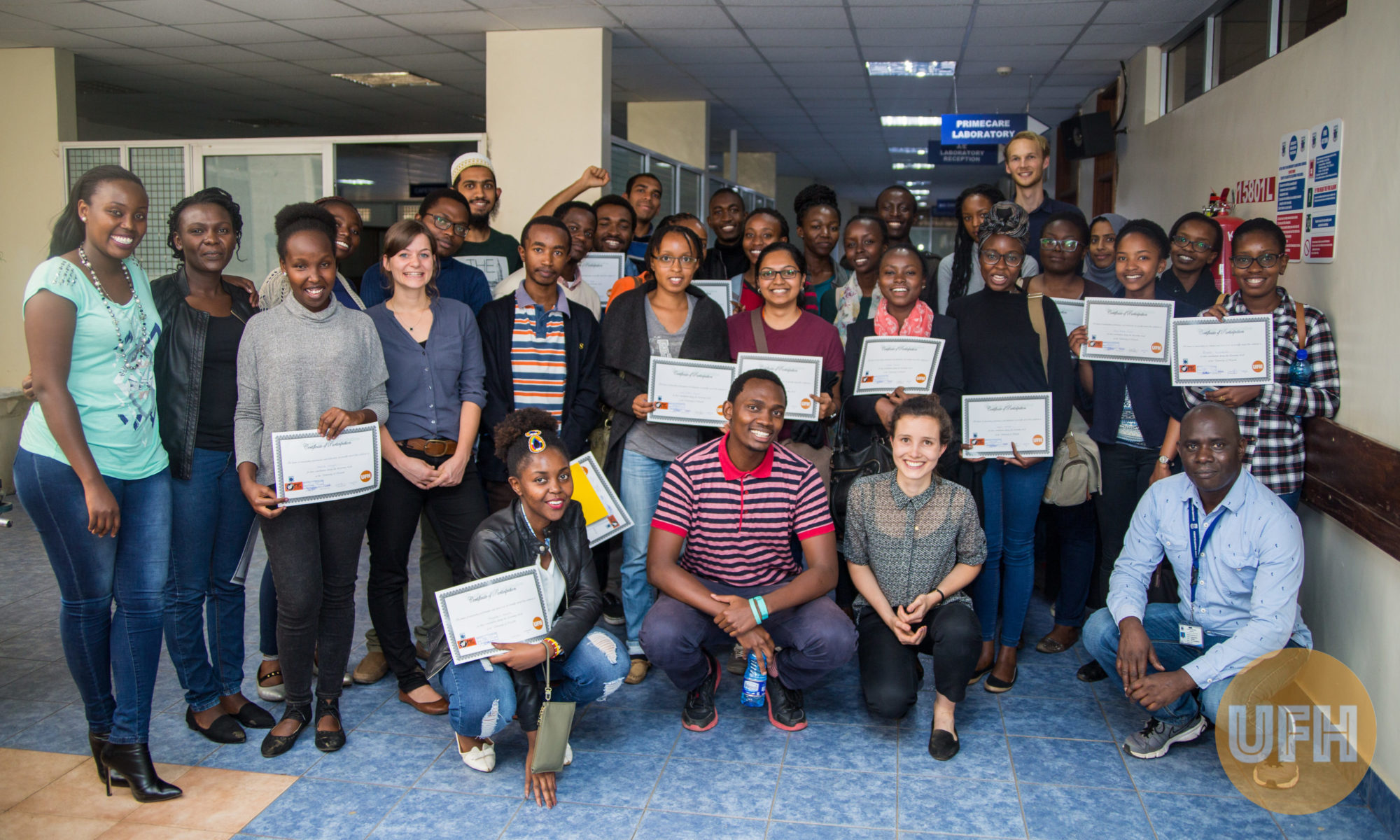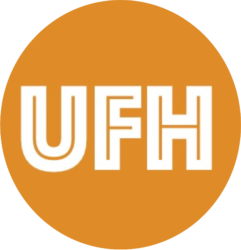Have you ever heard people say that Germans work like robots? Robots because of their impressive efficiency and reliability in performing tasks especially in the work environment? Well, I had the awesome opportunity to work with German doctors and medical students for three weeks at the University hospital Cologne in Germany, thanks to ‘Unified for Health, and I can confidently attest to the fact that Germans are impressively efficient and reliable.
The University hospital Cologne is one of the largest in Germany with a capacity of 1500 patient beds and about 11,000 employees. Located in the North Rhine-Westphalia state, the most populous state in Germany, this modern facility offers state-of-the-art healthcare services to patients as well as research on different aspects of human health.

During my medical elective in December 2019, I had my hospital rotations at the Department of Internal medicine, Department of Otorhinolaryngology and the Department of Urology. During that period, I shadowed different doctors and specialists during their day-to-day work at the hospital and observed the various medical procedures in the different labs, for a chance to experience healthcare practice in a setting different from that which I am accustomed to studying in. The doctors deliver health services with professionalism and are keen to engage the patients extensively on their health condition. The hospital investigations for the patients’ clinical diagnosis and follow-up are carried out without delay and the results are promptly obtained and relayed. The patients wards and consultation rooms are carefully structured for their comfort and ease-of-access, with no congestion. While clerking or performing procedures on patients, the doctors and medical students diligently observe the code of medical ethics of seeking an informed consent, as well as religiously adhere to the hospital hygiene practices for infection prevention. The medical equipment in the different labs i visited is adequate for the population, and lab services are offered with little, if any delay. Since Germany has an efficient national health insurance scheme where the patients receive any necessary treatment with no payment barriers in public hospitals, the medical treatment options available are limitless and accessible to all with no discrimination whatsoever. This i found very impressive.
Additionally, I spent two days in the operating theatres where i observed the anaesthesiology teams and the surgeons meticulously do what they do best. The aforementioned national health insurance scheme in Germany also covers surgical treatment options where necessary, making even the rather complex surgical procedures available to all with no discrimination whatsoever. In one of the operating rooms was the Da Vinci surgical system, a robotic surgical system approved in 2000 and designed to facilitate surgery using a minimally invasive approach. The robot has a patient cart with four interactive robotic arms controlled by a surgeon from a console and costs about US$2 million. Again, this i found very impressive.
At the University hospital Cologne is the Centre for Integrated Oncology-Aachen Bonn Cologne Düsseldorf, a joint oncological centre that designs cancer treatment for its patients to improve their prognosis. This is a perfect epitome of joint cooperation for better treatment guidelines for the patients and more efficient processes in oncology.
I was also able to join a lab tour at the Cologne Centre for Genomics where the researchers use superior infrastructure for gene mapping, whole genome association studies in complex diseases as well as the spectacular next generation DNA sequencing to accelerate medical research. They explained that their research, among other things, is geared towards improving treatment options for different groups of patients, such as cancer patients with rare tumor mutations.

During my free time, i toured the beautiful city of Köln, the city on the Rhein. Köln is both a city with an industrious and competitive vibe as well as exciting tourist attraction sights. The breathtaking Kölner Dom which is the third tallest church in the world, the historic Hiroshima Nagasaki park, the magnificent tied arch Hohenzollern bridge, the modern art Museum Ludwig are all stunning sights to take in. The efficient public transport system makes it so easy to navigate through this busy city, alternatively bikes are also very common and all the roads have clearly marked bike lanes. At the Lanxess arena Köln, i watched the incredible Kölner Haie during one of their ice-hockey games. The Kölner Haie are one of the top teams in the German Hockey League and also one of Europe’s most known hockey brands. Thereafter, I spent my Christmas with a friend in Salzburg, Austria, in the beauty of the Höllengebirge, a snow-caped mountain with a height of up to 1,862m and Attersee, the largest lake of the Salzkammergut region, Upper Austria. Experiencing the Austrian culture through the Austrian dishes and their Christmas tradition, and with the fondness of the people of Salzburg concluded my trip with beauty galore.



So why are Germans said to be impressively efficient and reliable in performing tasks especially in the work environment? From a tender age, the culture of industriousness and dedication to one’s work is inculcated in them, and they faithfully run with this admirable work culture even into adulthood. They take up the burden and responsibility of the completion of a task in their work environment individually and thus, positive results are forthcoming. The desire to be efficient seems to be a motivation streaming from within themselves, hence the high quality of goods and services Germans provide. The facilitation of my medical elective at the University hospital Cologne by Lukas Herrmann from Unified for Health was seamless and well-ordered too. This i am dearly grateful for.
In conclusion, my trip to Germany has been one of my best experiences so far, both professionally and personally. An experience which i endeavor that it further shapes my thoughts and processes towards becoming a better doctor in future and a better person. I am convinced, like never before, that the healthcare delivery practices in my home country Kenya can be polished up towards a more efficient health system and a well-motivated workforce to refine and advance the healthcare services offered to the communities we serve. Through collaborative efforts of the key stakeholders in healthcare and those in governance, it is possible to better the narrative of healthcare delivery in my beloved country, Kenya.
Read more on my trip to the international afternoon at Justus-Liebig University in Gießen


Hey I read until the end, vielen dank
Hello Wow, this article is fastidious, my younger sister is analyzing such things, so I am going to inform her. grazie